Bike review: Enigma Echo
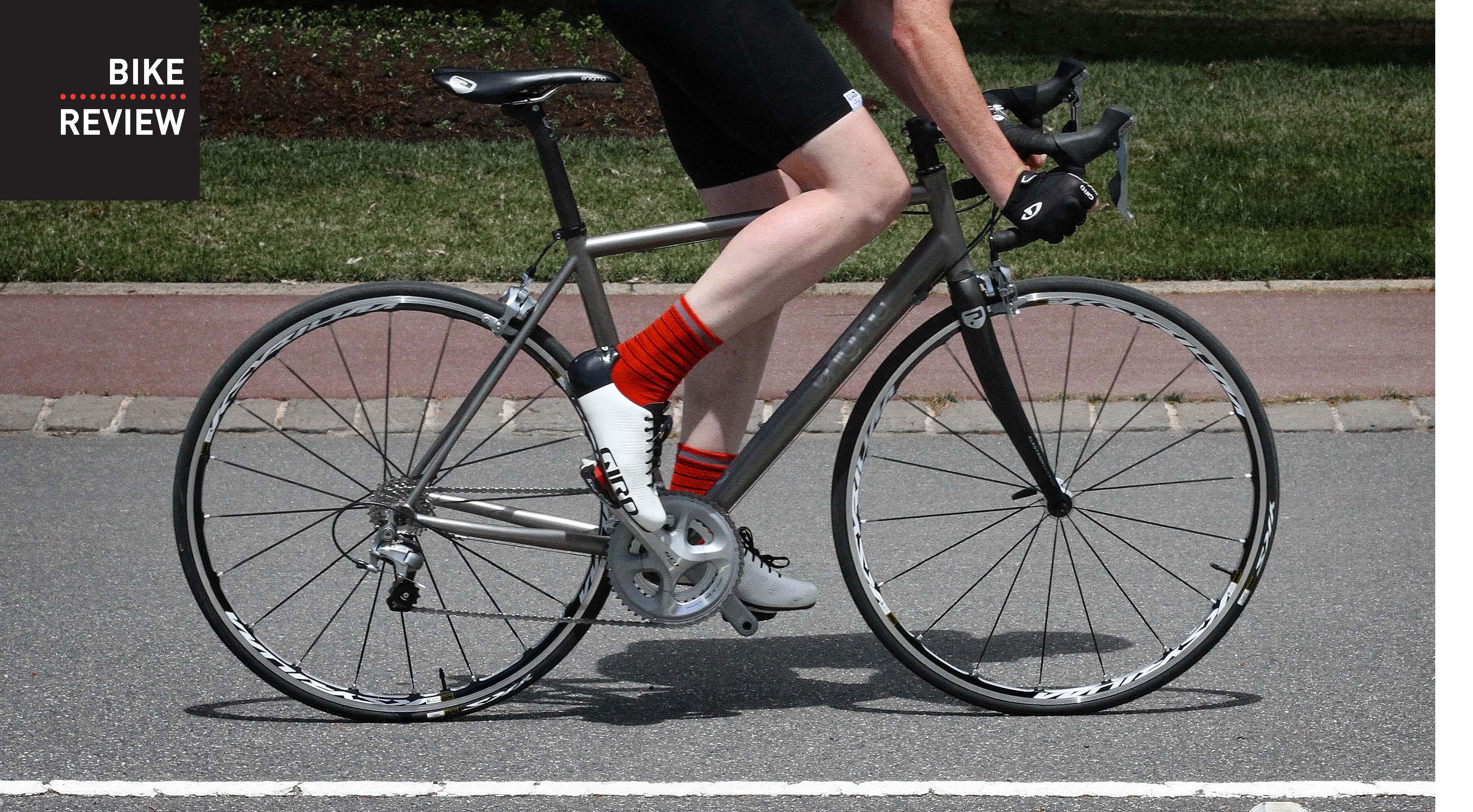
For those with refined tastes and an appreciation of craftsmanship, Enigma offer a rewarding alternative, explains Iain Treloar.
Photography by Karl Hilzinger and Thomas Joynt.
Titanium is justifiably revered, offering an elusive balance of light weight, durability, strength and a forgiving ride quality. British manufacturer Enigma, like many of a growing crop of high-end frame builders, specialise in this material (with a bit of stainless steel on the side), offering a number of different geometries as well as complete custom builds.
Each titanium model manufactured by Enigma—aside from the range-topping Excel—is made from the same titanium alloy (95.5% titanium, 3% aluminium, 2.5% vanadium). This material is used on the majority of titanium bikes, but there is significant variation in what the bike will end up feeling like depending on the builder’s utilisation of its properties.
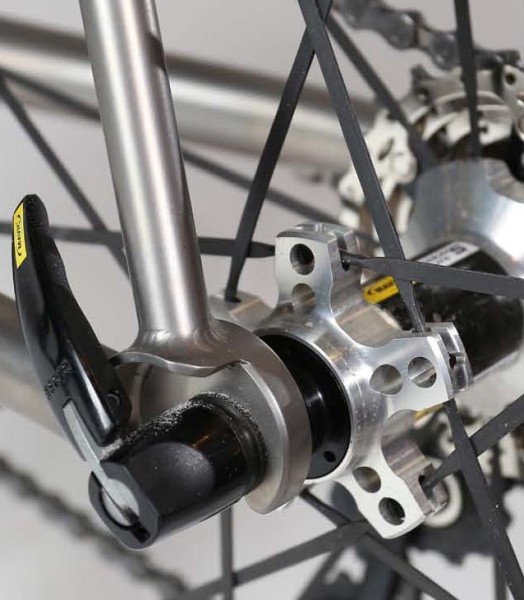 The Echo is Enigma’s best-selling model, offering a crowd-pleasing middle ground between comfort and speed. It’s a thoroughly modern-looking titanium bike, eschewing traditional flat top-tube geometry for a semi-compact shape, with a large oval downtube and an accessible 16.5cm headtube in our 55cm test bike. Out of the number of different finishes Enigma offers, ours came with a bead-blasted frame and mirror polished logos, allowing the fine workmanship to show. The TIG-welded joins of the Echo were among the tidiest I’ve encountered, with subtle flourishes like an etched logo on the rear brake bridge further evidence of the craft displayed.
The Echo is Enigma’s best-selling model, offering a crowd-pleasing middle ground between comfort and speed. It’s a thoroughly modern-looking titanium bike, eschewing traditional flat top-tube geometry for a semi-compact shape, with a large oval downtube and an accessible 16.5cm headtube in our 55cm test bike. Out of the number of different finishes Enigma offers, ours came with a bead-blasted frame and mirror polished logos, allowing the fine workmanship to show. The TIG-welded joins of the Echo were among the tidiest I’ve encountered, with subtle flourishes like an etched logo on the rear brake bridge further evidence of the craft displayed.
The Echo is available through Enigma’s Australian distributor, British Imports, as either a frameset or a complete bike specced to your preference. There are many merits to this process, allowing you to build up the bike with the most suitable gearing range for your riding, the right handlebar width and stem length, and more besides. Getting a good fit on Enigma’s stock frames is pretty easy if you’re of average height, with closely-spaced jumps between sizes in the middle of the geometry chart; if you’re outside this bell curve the option of a custom built frame is a handy fallback.
Given the relatively high cost of titanium frames—the Echo frameset, including frame, full carbon fork, headset, carbon seatpost and carbon stem comes in at $3,873—it’s not your typical bike purchase. However, given titanium’s reputation for longevity, it still represents good value. There’s a permanence to the material and its classic appearance that is worlds away from carbon fibre, which is both more prone to certain types of failure, and aesthetically dates quickly. Because it’s somewhat of a ‘legacy’ material; many titanium bike purchasers go to town with a top-end build, but the purpose behind our review bike was to demonstrate how even this most alluring frame material can be accessible. The frame’s great, sure, but it doesn’t need to hide behind a high-end groupset to present as such.
Our test model was provided with Shimano’s mid-range 105 groupset, in its new 11-speed version. It’s the first time we’ve tested this groupset, having spent quite a lot of time on Ultegra lately (bit.ly/1utHyBj), and it’s a succinct demonstration of just how good road bike componentry now is. Although 105 sacrifices a few hundred grams to Ultegra (which, in turn, does the same to Dura Ace), its latest iteration is pronounced in both its reliability and its smoothness. Compared to previous versions, the braking is more powerful, the levers more comfortable and the shifting more refined. Although gear changes remain slightly more pronounced under load than its pricier siblings, it’s a great groupset and—for the price—brings a level of performance that would have been unimaginable even a couple of years ago. A particularly nice touch on the newer generation Shimano groupsets is the ability to change between chainring sizes on the one crankset; ours, which came provided with a 50/34t compact set-up, was ample to get up any hill encountered in the course of testing. And visually, in the groupset’s silver incarnation, it was a great match for the rest of the bike.
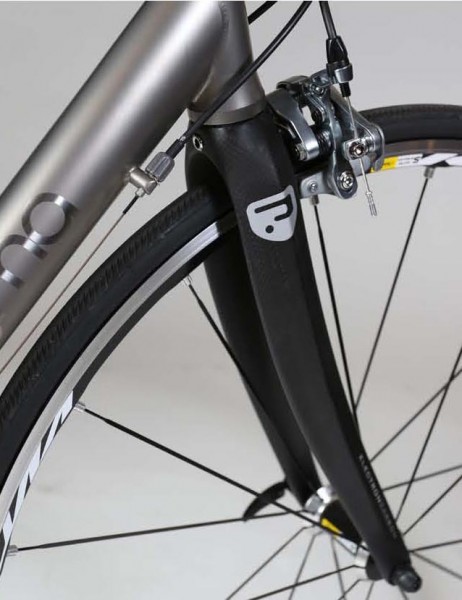 Groupsets provide an important service—and are often one of the main factors people consider when purchasing a bike—but in terms of actual significance to ride quality, their input is minimal. Wheels play a far greater role in the feel of a bike; a good wheelset can bring a bike alive, and a bad one can bog it down. Our test Echo was provided with Mavic’s upper-mid-range Ksyrium Elite S wheelset, shod with Mavic’s in-house Yksion Pro tyres (700x23c). The Ksyrium Elite S is a capable wheelset—and pretty lightweight at just over 1500g—but whilst it highlighted some of the Echo’s best characteristics, it sold some others short. The Elite S is a firm-riding wheel, giving an efficient feel and pleasing response to acceleration, but it lacks a little in comfort, making for a fair bit of transfer of road vibration through the saddle and handlebars on rough roads. The stout 31.6mm diameter seatpost doubtless plays a role here, too. During testing I experimented with swapping to a more compliant wheelset with 700x25c tyres, and it made an appreciable difference to the bike’s comfort, giving the bike that lovely, glidey titanium road-feel that was downplayed with its original wheels. Installing some slightly wider tyres, at a lower pressure, onto the Ksyriums would similarly improve comfort.
Groupsets provide an important service—and are often one of the main factors people consider when purchasing a bike—but in terms of actual significance to ride quality, their input is minimal. Wheels play a far greater role in the feel of a bike; a good wheelset can bring a bike alive, and a bad one can bog it down. Our test Echo was provided with Mavic’s upper-mid-range Ksyrium Elite S wheelset, shod with Mavic’s in-house Yksion Pro tyres (700x23c). The Ksyrium Elite S is a capable wheelset—and pretty lightweight at just over 1500g—but whilst it highlighted some of the Echo’s best characteristics, it sold some others short. The Elite S is a firm-riding wheel, giving an efficient feel and pleasing response to acceleration, but it lacks a little in comfort, making for a fair bit of transfer of road vibration through the saddle and handlebars on rough roads. The stout 31.6mm diameter seatpost doubtless plays a role here, too. During testing I experimented with swapping to a more compliant wheelset with 700x25c tyres, and it made an appreciable difference to the bike’s comfort, giving the bike that lovely, glidey titanium road-feel that was downplayed with its original wheels. Installing some slightly wider tyres, at a lower pressure, onto the Ksyriums would similarly improve comfort.
This firm ride quality—and it’s not ‘harsh’, per se, more ‘robust’—is far from a deal breaker, when put up alongside the overwhelmingly positive mannerisms exhibited elsewhere on the Echo. The bike’s handling is a gorgeous thing; it’s predictable but lively, tracks with confidence and descends superbly. Over the course of my time with the Echo, I was frequently taking sharp corners at greater speed and with greater confidence than normal, and the bike tracked exactly where I wanted it to go with almost eerie precision.
It’s also a punchy little climber, relishing sharp efforts out of the saddle up around hairpins. For extended slogs up gentler gradients there’s little hint of flex even when stomping on the pedals, and although it’s not jaw-droppingly lightweight (7.90kg in this build configuration), it ascends with impressive ease.
The finishing kit of our test bike was mostly Enigma’s own house-brand kit; carbon stem and seatpost (trouble-free), bar-tape (cushy black) and saddle (intermediate comfort, but that comes down to personal taste). One notable diversion from this was a PRO Vibe 7s handlebar, which was stiff and sturdy, with the oversized diameter at the clamp extending most of the way along the top of the bar, providing a nice thick platform on which to rest the hands. I prefer a more compact drop, but for the majority of my riding all the contact points complemented the high overall finish of the rest of the bike.
The Echo is a nicely-executed demonstration of titanium’s abilities as a frame material. Although it’s not as light, or stiff, as a top-end carbon road bike, for a lot of riders any minor trade-off in performance will repay the investment with comfort, durability and distinguished good looks. With the Echo, Enigma have created a wonderful platform equally at home with mid-range componentry all the way up to the very top-shelf, which will continue to impress its owners for the duration of a long life together.
Specs
| Frame | 3AL 2.5V double-butted titanium | |
| Fork | Electron full carbon, 1 1/8” | |
| Wheels | Mavic Ksyrium Elite S | |
| Tyres | Mavic Yksion Pro Powerlink, 700x23C | |
| Crankset | Shimano 105 5800, 50/34t | |
| Cassette | Shimano 105 5800, 11-25t | |
| Levers | Shimano 105 5800 | |
| Front Derailleur | Shimano 105 5800 | |
| Rear Derailleur | Shimano 105 5800 | |
| Frame set | (frame, fork, seatpost, stem, headset) $3,873 | |
| This build | $4,999 |
92%
| Function | 37/40 | |
| Quality | 38/40 | |
| Price | 8/10 | |
| Appearance | 9/10 |
For more info, britishimports.com.au
Ride On content is editorially independent, but is supported financially by members of Bicycle Network. If you enjoy our articles and want to support the future publication of high-quality content, please consider helping out by becoming a member.


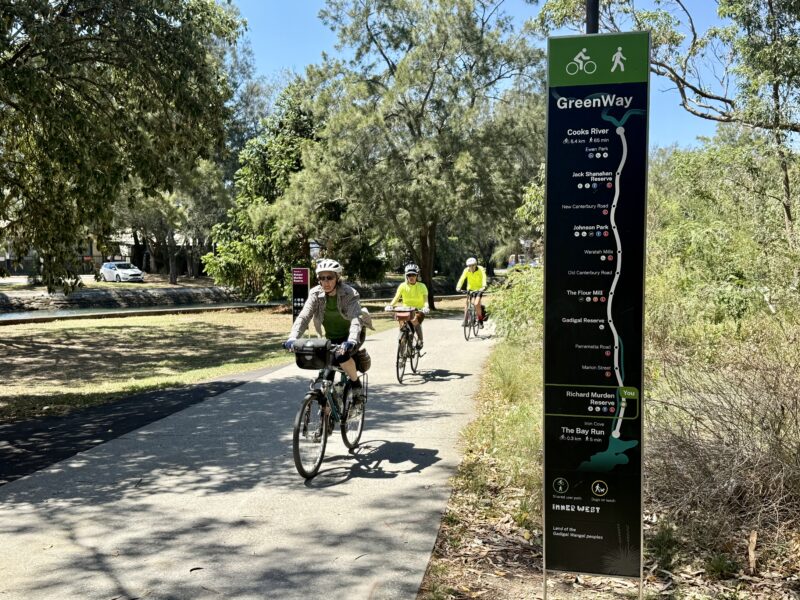

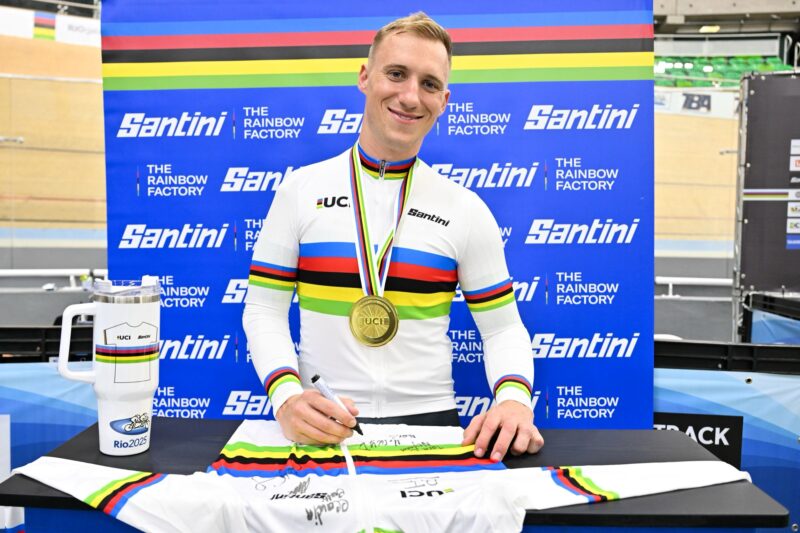

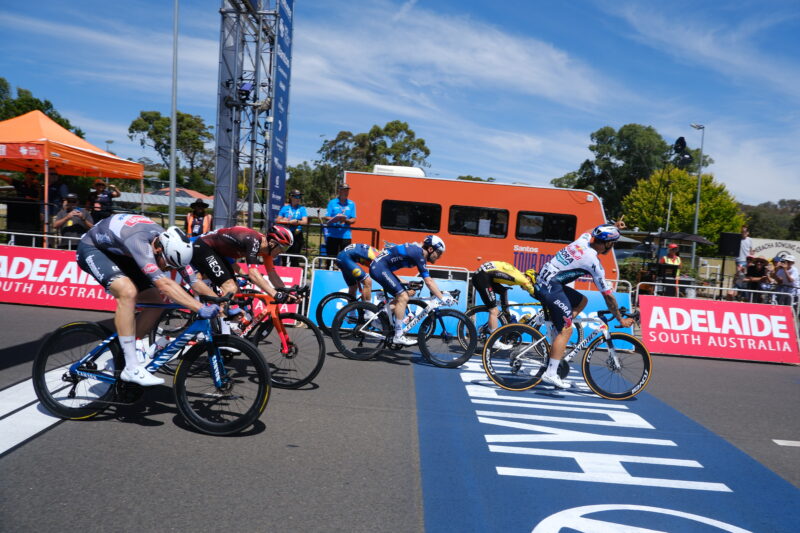
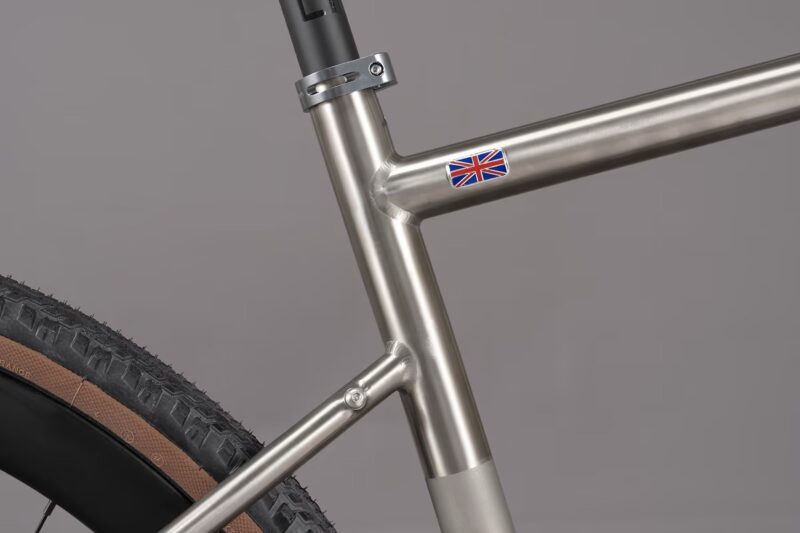
Great review! The Enigma Echo sounds like an impressive bike, especially with its lightweight frame and responsive handling. I’m curious about how it performs on different terrains. Looking forward to trying it out!